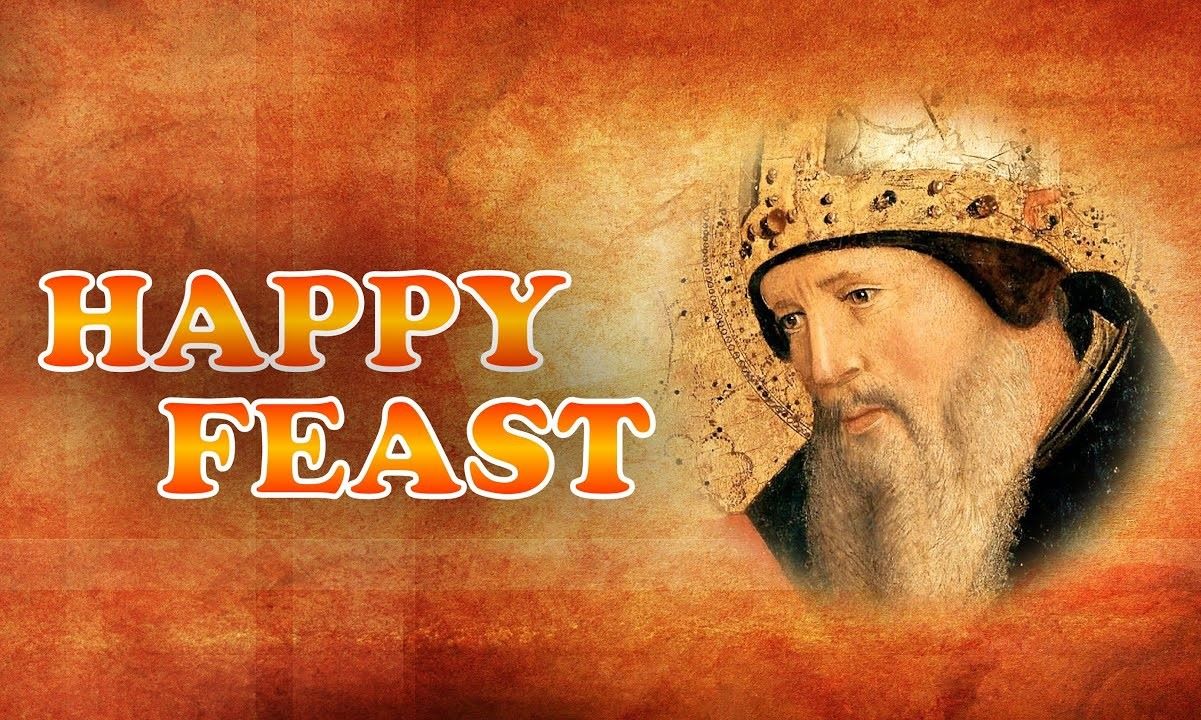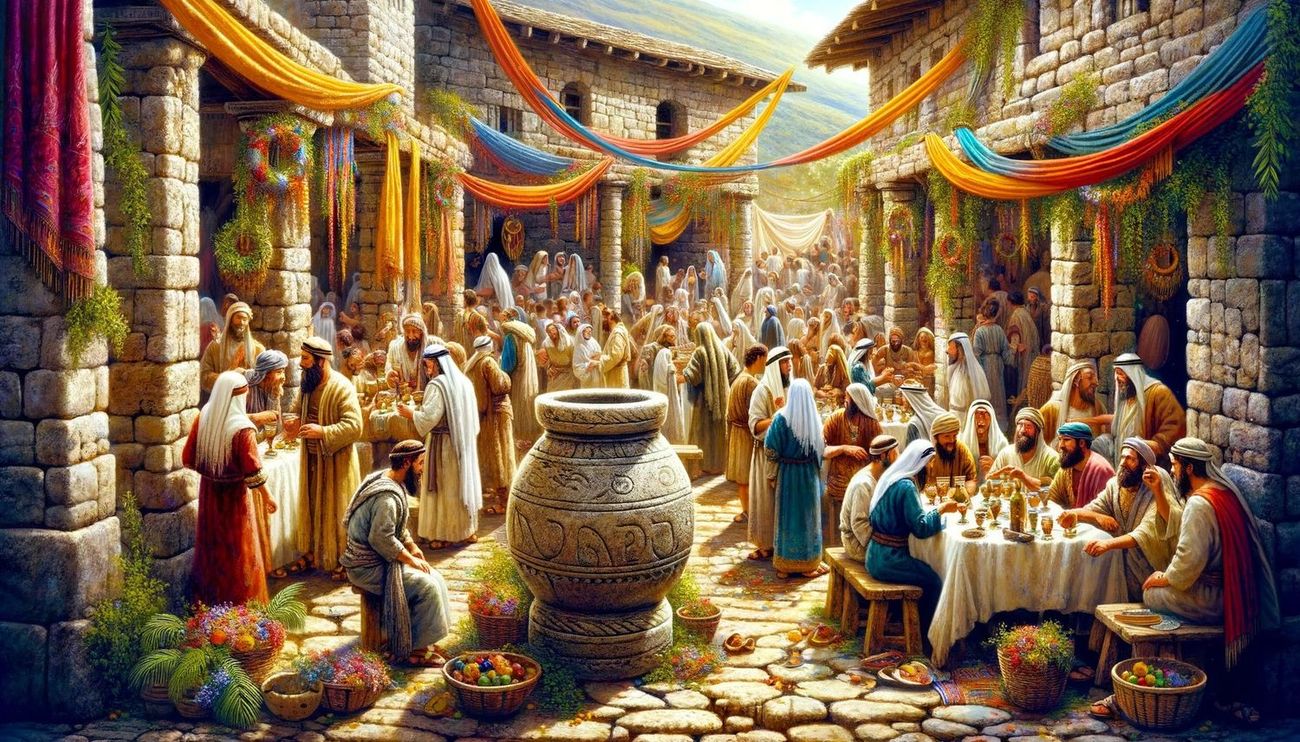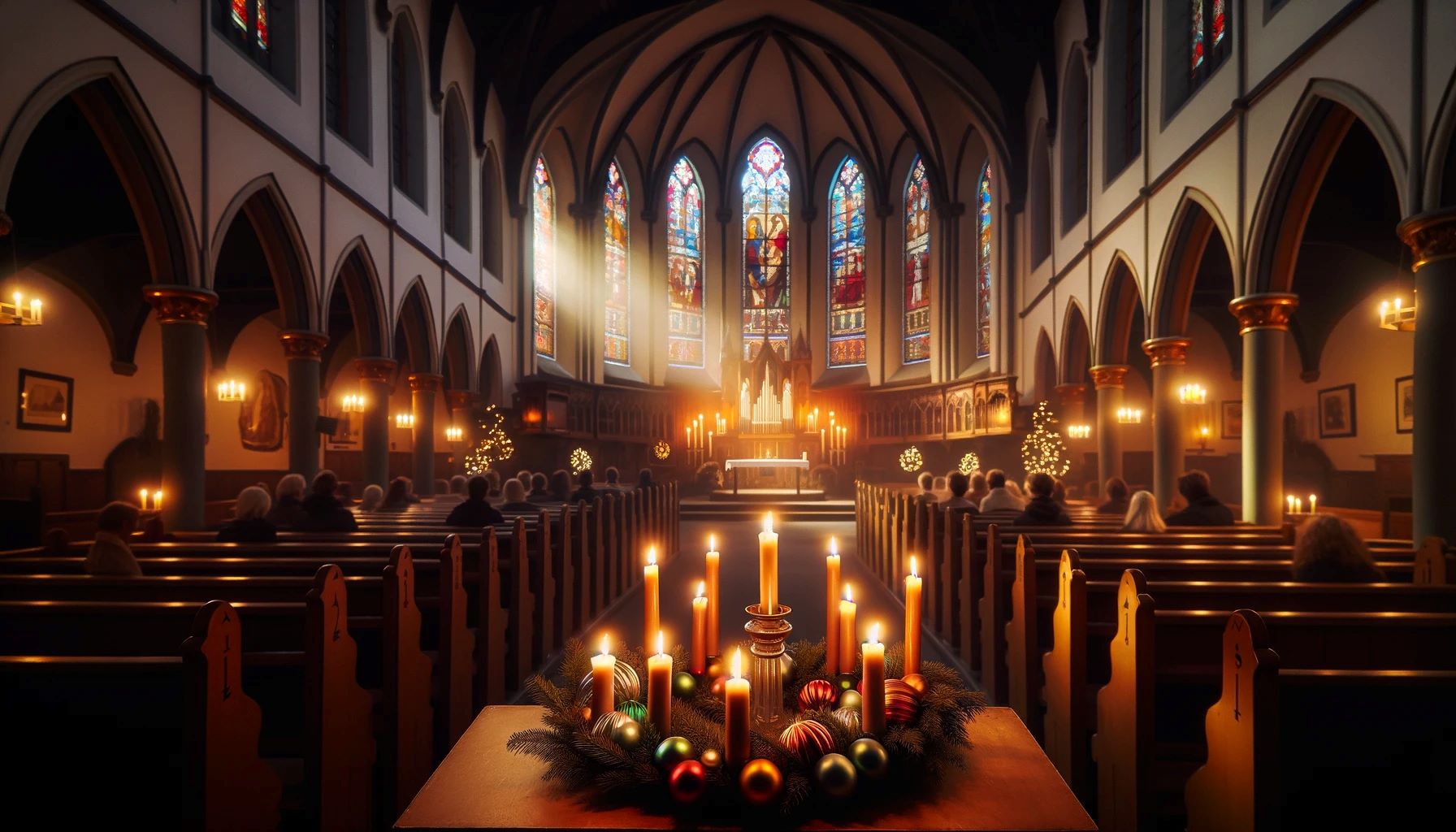Home>Special Themes>What Feast Follows Advent


Special Themes
What Feast Follows Advent
Published: February 13, 2024
Peter Smith, Editorial Director at Christian.net, combines deep insights into faith, politics, and culture to lead content creation that resonates widely. Awarded for his contributions to religious discourse, he previously headed a major organization for religious communicators, enhancing dialogue on faith's societal impacts.
Discover the special themes and feast that follow Advent, and learn how to celebrate them with joy and meaning. Explore the significance and traditions of these special occasions.
(Many of the links in this article redirect to a specific reviewed product. Your purchase of these products through affiliate links helps to generate commission for Christian.net, at no extra cost. Learn more)
Table of Contents
Introduction
The period following Advent is marked by a series of significant feasts in the Christian calendar, each holding its own unique significance and traditions. These feasts, including Christmas, Epiphany, and the Baptism of the Lord, are celebrated with great reverence and joy by Christians around the world. Each feast carries its own historical and spiritual importance, enriching the tapestry of faith and tradition.
As we delve into the history and significance of these feasts, we will uncover the deep-rooted traditions and spiritual meanings that have been cherished for centuries. From the anticipation and preparation of Advent to the joyous celebrations of Christmas and the profound revelations of Epiphany and the Baptism of the Lord, this journey through the feasts following Advent offers a glimpse into the rich tapestry of Christian faith and tradition.
Read more: What Is A Feast Day In Catholicism
The History of Advent
The history of Advent dates back to the 4th and 5th centuries when Christians began to prepare for the celebration of the birth of Jesus Christ. The word "Advent" is derived from the Latin word "adventus," meaning "coming" or "arrival." This season marks the beginning of the liturgical year in the Western Christian tradition and is a time of spiritual preparation and anticipation.
Originally, Advent was a period of fasting and penitence, similar to the season of Lent. It was a time for believers to reflect on the significance of Christ's coming and to prepare their hearts for the celebration of his birth. Over time, the observance of Advent evolved to incorporate themes of hope, love, joy, and peace, symbolized by the lighting of the Advent wreath candles.
The four-week duration of Advent symbolizes the four centuries of waiting for the Messiah, as prophesied in the Old Testament. The liturgical color of Advent, often purple or blue, represents a sense of penitence and royalty, signifying both the solemnity of the season and the anticipation of the coming King.
In the early centuries, Advent was a time of spiritual reflection and fasting, with an emphasis on the imminent return of Christ. However, as the observance of Advent spread throughout the Christian world, it also became a time of joyful anticipation and preparation for the celebration of Christmas.
Today, Advent is observed with a blend of solemnity and joyful expectation. It is a time for believers to reflect on the historical significance of Christ's birth, as well as to anticipate his second coming. The season is marked by the lighting of the Advent wreath, the singing of traditional hymns, and the reading of biblical passages that foretell the coming of the Messiah.
As the history of Advent demonstrates, this season serves as a meaningful bridge between the anticipation of Christ's birth and the celebration of his arrival. It is a time for believers to pause, reflect, and prepare their hearts to welcome the Savior into their lives once again.
The Feast of Christmas
The Feast of Christmas, celebrated on December 25th, marks the birth of Jesus Christ and holds profound significance in the Christian faith. It is a time of joy, reverence, and spiritual reflection, as believers around the world come together to commemorate the arrival of the long-awaited Messiah.
The observance of Christmas is rooted in both historical and religious traditions, intertwining the biblical narrative of Christ's birth with customs and rituals that have evolved over centuries. The Nativity story, as recounted in the Gospels of Matthew and Luke, forms the cornerstone of the Christmas celebration, portraying the humble yet miraculous circumstances surrounding the birth of Jesus in Bethlehem.
Central to the Christmas observance is the concept of Emmanuel, meaning "God with us." This profound truth encapsulates the essence of the Incarnation, affirming the belief that God took on human form in the person of Jesus Christ. The birth of Jesus represents the fulfillment of ancient prophecies and the embodiment of divine love and redemption for humanity.
The traditions associated with Christmas vary across cultures and regions, encompassing a rich tapestry of customs, music, and festive rituals. From the adorning of Christmas trees and the exchange of gifts to the singing of carols and the retelling of the Nativity story, each tradition adds depth and vibrancy to the celebration.
The symbolism of Christmas extends beyond the exchange of presents and the merriment of gatherings. It serves as a poignant reminder of the profound spiritual truth that God entered the world as a vulnerable infant, bringing hope and salvation to all. The act of giving during Christmas reflects the ultimate gift of grace bestowed upon humanity through the birth of Jesus Christ.
Amidst the festive cheer and the warmth of family and community, the Feast of Christmas invites believers to contemplate the deeper spiritual implications of Christ's birth. It serves as a time for introspection, gratitude, and renewed faith, as individuals pause to reflect on the profound impact of the Incarnation on their lives and the world at large.
In essence, the Feast of Christmas encapsulates the timeless message of hope, love, and redemption, resonating across generations and cultures. It stands as a testament to the enduring significance of Christ's birth, inviting believers to embrace the transformative power of the Incarnation and to share the message of peace and goodwill with all.
The celebration of Christmas serves as a poignant reminder of the profound spiritual truth that God entered the world as a vulnerable infant, bringing hope and salvation to all. The act of giving during Christmas reflects the ultimate gift of grace bestowed upon humanity through the birth of Jesus Christ.
Amidst the festive cheer and the warmth of family and community, the Feast of Christmas invites believers to contemplate the deeper spiritual implications of Christ's birth. It serves as a time for introspection, gratitude, and renewed faith, as individuals pause to reflect on the profound impact of the Incarnation on their lives and the world at large.
In essence, the Feast of Christmas encapsulates the timeless message of hope, love, and redemption, resonating across generations and cultures. It stands as a testament to the enduring significance of Christ's birth, inviting believers to embrace the transformative power of the Incarnation and to share the message of peace and goodwill with all.
The Feast of Epiphany
The Feast of Epiphany, celebrated on January 6th, holds a revered place in the Christian calendar, marking the manifestation of Jesus Christ to the Gentiles. This significant feast, also known as the Theophany in some traditions, encompasses a rich tapestry of historical, spiritual, and cultural significance.
The term "Epiphany" is derived from the Greek word "epiphaneia," meaning "manifestation" or "appearance." The feast commemorates the revelation of Jesus as the Son of God and the Savior of all humanity, symbolized by the visit of the Magi, or Wise Men, to the infant Jesus. This pivotal event, as recounted in the Gospel of Matthew, signifies the universal nature of Christ's mission and the fulfillment of ancient prophecies.
Central to the observance of Epiphany is the imagery of light, symbolizing the divine illumination and revelation brought by the presence of Christ. The tradition of blessing and distributing of Epiphany water, signifying purification and renewal, is a poignant ritual observed in many Christian communities.
The Feast of Epiphany also encompasses the tradition of the "Three Kings' Day," which holds special significance in various cultures. In many regions, this day is marked by vibrant processions, lively festivities, and the sharing of symbolic foods, such as the "King's Cake" in some traditions. These customs serve to underscore the global impact of Christ's manifestation and the unity of believers across diverse cultures and traditions.
The spiritual significance of Epiphany extends beyond the historical narrative, inviting believers to reflect on the profound revelation of Christ's identity and mission. It serves as a reminder of the inclusive nature of God's redemptive plan, embracing people of all nations and backgrounds.
The Feast of Epiphany also holds a unique resonance in the liturgical calendar, marking the transition from the Christmas season to the period of Ordinary Time. This shift underscores the continuity of Christ's ministry and the ongoing revelation of his teachings and miracles, guiding believers in their spiritual journey.
In essence, the Feast of Epiphany stands as a testament to the universal manifestation of God's love and grace through the person of Jesus Christ. It serves as a time for believers to celebrate the profound revelation of the Savior to the world and to embrace the enduring message of hope, unity, and divine illumination.
The observance of Epiphany invites believers to reflect on the profound revelation of Christ's identity and mission, serving as a reminder of the inclusive nature of God's redemptive plan, embracing people of all nations and backgrounds.
The Feast of the Baptism of the Lord
The Feast of the Baptism of the Lord, celebrated on the Sunday following the Feast of Epiphany, holds profound significance in the Christian liturgical calendar. This sacred feast commemorates the pivotal event of Jesus' baptism in the Jordan River by John the Baptist, marking the initiation of Christ's public ministry.
The baptism of Jesus stands as a transformative moment, symbolizing the divine affirmation of his identity as the Son of God and the chosen Messiah. The Gospel accounts of this event portray the descent of the Holy Spirit in the form of a dove and the voice from heaven declaring, "This is my beloved Son, with whom I am well pleased." This divine manifestation affirms the unique relationship between Jesus and the Father, setting the stage for his redemptive mission.
The Feast of the Baptism of the Lord also holds deep theological significance, emphasizing the themes of purification, renewal, and the outpouring of the Holy Spirit. The act of baptism, traditionally regarded as a sacrament of initiation in Christian faith, represents the cleansing of sin and the spiritual rebirth of believers. Through his own baptism, Jesus exemplified the path of obedience and humility, setting an example for his followers to embrace the call to righteousness and spiritual transformation.
The observance of this feast invites believers to reflect on the profound implications of Christ's baptism and its relevance to their own spiritual journey. It serves as a reminder of the redemptive power of baptism, signifying the union with Christ and the reception of the Holy Spirit. The baptism of Jesus not only inaugurated his public ministry but also foreshadowed the sacramental grace extended to all who seek to follow his teachings and embrace the path of discipleship.
In many Christian traditions, the Feast of the Baptism of the Lord is accompanied by the renewal of baptismal vows, reaffirming the commitment to live out the faith and uphold the values exemplified by Jesus. This ritual serves as a poignant reminder of the ongoing call to spiritual renewal and the continuous journey of faith for believers.
In essence, the Feast of the Baptism of the Lord encapsulates the profound significance of Christ's baptism as a transformative and redemptive moment in the Christian narrative. It serves as a time for believers to contemplate the enduring impact of this event and to embrace the call to spiritual renewal, guided by the example and teachings of Jesus Christ.















